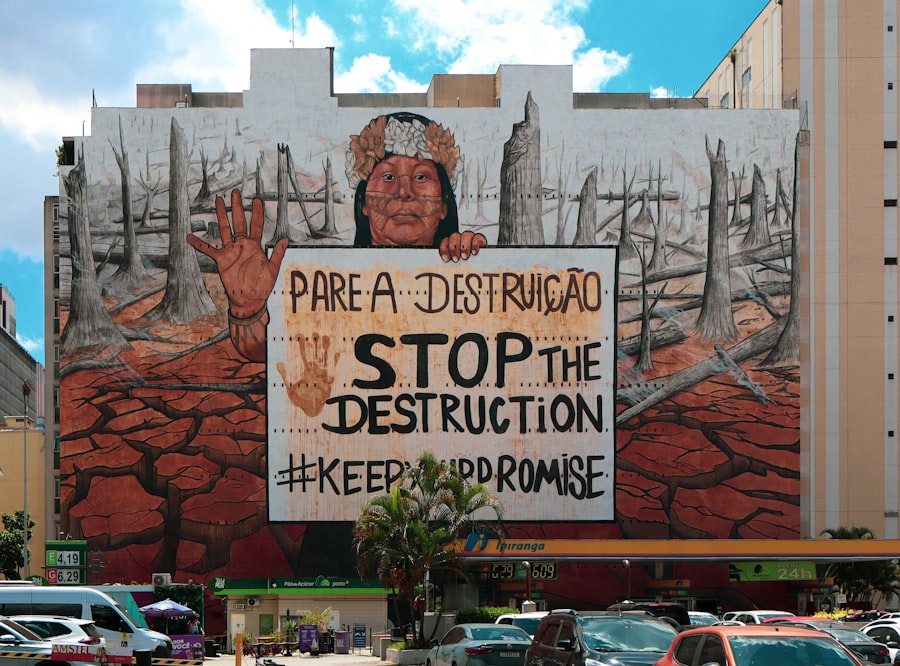The privatization of warfare in Africa has emerged as a significant and controversial phenomenon, reshaping the landscape of conflict and security across the continent. This trend involves the increasing reliance on private military companies (PMCs) to conduct military operations, provide security services, and engage in combat on behalf of various stakeholders, including governments, corporations, and non-state actors. As African nations grapple with persistent instability, civil wars, and terrorism, the allure of outsourcing military functions to private entities has gained traction.
This shift raises critical questions about sovereignty, accountability, and the ethical implications of allowing profit-driven organizations to wield military power. The implications of this privatization extend beyond mere military strategy; they touch upon the very fabric of governance and societal stability in African nations. The involvement of PMCs often blurs the lines between state responsibility and corporate interests, leading to complex dynamics that can exacerbate existing conflicts or create new ones.
As the continent continues to navigate its post-colonial legacy and the challenges of modern governance, understanding the privatization of warfare becomes essential for comprehending the broader implications for peace and security in Africa.
Key Takeaways
- Privatization of warfare in Africa involves increasing reliance on private military companies (PMCs) in conflicts.
- PMCs have a historical presence in Africa, influencing various conflicts and security dynamics.
- The use of PMCs raises significant ethical, legal, and economic concerns impacting African stability.
- International actors play a crucial role in facilitating and regulating the involvement of PMCs in Africa.
- African governments face challenges in effectively regulating PMCs to ensure peace and security on the continent.
Historical background of private military companies in Africa
The roots of private military companies in Africa can be traced back to the late 20th century, a period marked by the end of colonial rule and the emergence of numerous independent states. In the wake of decolonization, many African nations faced internal strife, ethnic tensions, and power struggles that often led to violent conflicts. During this tumultuous time, some governments turned to foreign mercenaries to bolster their military capabilities.
These early forms of PMCs were often unregulated and operated outside the bounds of international law, setting a precedent for future engagements. The 1990s saw a significant evolution in the landscape of private military operations in Africa. The end of the Cold War led to a reduction in state-sponsored military support for various factions, creating a vacuum that PMCs sought to fill.
Companies like Executive Outcomes gained notoriety for their involvement in conflicts such as the Sierra Leone Civil War, where they provided military expertise and support to government forces against rebel groups. This period marked a turning point, as PMCs began to be viewed not just as mercenaries but as legitimate actors in conflict resolution, albeit with a profit motive that raised ethical concerns.
The impact of privatization of warfare on African conflicts
The privatization of warfare has had profound effects on the nature and dynamics of conflicts across Africa. One significant impact is the alteration of traditional power structures within states. By outsourcing military functions to PMCs, governments may inadvertently weaken their own armed forces and diminish state authority.
This shift can lead to a reliance on external actors for security, which may undermine national sovereignty and create a dependency that is difficult to reverse. Moreover, the presence of PMCs can exacerbate existing conflicts by introducing new actors with their own agendas. These companies often operate with little oversight or accountability, leading to potential human rights abuses and violations of international law.
The profit-driven nature of PMCs can incentivize prolonged conflict rather than resolution, as companies may benefit from ongoing instability. This dynamic complicates peace efforts and can hinder the establishment of lasting solutions to conflicts that have plagued the continent for decades.
The role of international actors in the privatization of warfare in Africa
| International Actor | Type of Involvement | Region/Country | Impact on Privatization of Warfare | Key Metrics |
|---|---|---|---|---|
| Private Military Companies (PMCs) | Security contracting, training, logistics | DR Congo, Libya, Somalia | Increased reliance on private forces for combat and security operations | Number of contracts awarded: 50+ (2010-2023); Personnel deployed: 5,000+ |
| United Nations | Peacekeeping, monitoring, advisory roles | South Sudan, Central African Republic | Facilitated partnerships with private security firms for logistical support | Peacekeeping budget involving private contractors: 15% of total; Number of private contractors: 1,200+ |
| Western Governments (e.g., USA, UK, France) | Funding, training, intelligence sharing | Mali, Niger, Chad | Encouraged outsourcing of military operations to private firms | Military aid involving private contractors: 30% of total aid; Number of PMCs supported: 10+ |
| Multinational Corporations | Security for resource extraction, infrastructure protection | Angola, Nigeria, Mozambique | Increased demand for private security services to protect assets | Private security personnel employed: 3,000+; Contracts with PMCs: 20+ |
| Regional Organizations (e.g., African Union) | Coordination of peace operations, capacity building | Sudan, Somalia | Promoted use of private actors to supplement national forces | Number of joint operations involving PMCs: 5; Training programs with private firms: 8 |
International actors play a crucial role in the privatization of warfare in Africa, influencing both the demand for PMCs and their operational frameworks. Foreign governments, multinational corporations, and international organizations often seek the services of PMCs for various reasons, including resource extraction, security provision, and political stability. This demand creates a market for PMCs that can operate in environments where traditional military forces may be reluctant or unable to intervene.
Additionally, international regulations surrounding PMCs are often inadequate or poorly enforced. While some countries have implemented laws governing the activities of private military contractors, these regulations vary widely and are frequently circumvented. The lack of a cohesive international framework allows PMCs to exploit legal loopholes and operate with impunity in conflict zones.
As a result, international actors must grapple with the consequences of their reliance on PMCs, including potential complicity in human rights violations and the undermining of local governance structures.
The ethical and legal implications of using private military companies in African conflicts
The ethical and legal implications of employing private military companies in African conflicts are complex and multifaceted.
They may offer specialized skills, rapid deployment capabilities, and logistical support that can enhance security efforts.
However, this perspective often overlooks the moral dilemmas associated with privatizing warfare. Critics contend that the use of PMCs raises significant ethical concerns regarding accountability and transparency. When private entities engage in military operations, questions arise about who is responsible for their actions—whether it is the company itself, the government that contracted them, or both.
The potential for human rights abuses is heightened when profit motives overshadow ethical considerations. Furthermore, the lack of clear legal frameworks governing PMC operations can lead to impunity for actions taken during conflicts, complicating efforts to hold individuals accountable for violations.
The economic implications of privatization of warfare in Africa

The economic implications of privatizing warfare in Africa are profound and far-reaching.
This influx of capital can be beneficial in regions struggling with poverty and unemployment.
However, this economic boost is often short-lived and may not translate into sustainable development or long-term stability. Conversely, the reliance on PMCs can divert resources away from essential public services such as education and healthcare. Governments may prioritize military spending over social programs, exacerbating existing inequalities and undermining efforts to build resilient communities.
Additionally, the profit-driven nature of PMCs can lead to inflated costs for security services, placing further strain on already limited national budgets. As African nations navigate these economic challenges, they must carefully consider the trade-offs associated with outsourcing military functions.
Case studies of private military companies operating in Africa
Several case studies illustrate the diverse roles that private military companies have played across Africa’s conflict zones. One notable example is Executive Outcomes’ involvement in Sierra Leone during the 1990s. Hired by the government to combat rebel forces, Executive Outcomes successfully turned the tide in favor of government troops but faced criticism for its aggressive tactics and alleged human rights abuses.
This case highlights both the potential effectiveness of PMCs in addressing immediate security threats and the ethical dilemmas that arise from their operations. Another significant case is that of Wagner Group’s activities in Libya and Central African Republic (CAR). This Russian PMC has been linked to various operations supporting local governments against insurgent groups while also securing lucrative mining contracts for its parent company.
Wagner’s involvement raises questions about foreign influence in African conflicts and the implications for sovereignty when external actors pursue their interests through private military means.
The potential risks and challenges of using private military companies in African conflicts
The use of private military companies in African conflicts presents numerous risks and challenges that can undermine peace efforts and exacerbate instability. One major concern is the potential for escalation of violence as PMCs engage in combat operations without clear oversight or accountability mechanisms. Their presence can lead to an arms race among competing factions seeking similar support, further entrenching conflict dynamics.
Additionally, PMCs may lack a commitment to long-term peacebuilding efforts. Their focus on profit can result in short-term solutions that do not address underlying grievances or root causes of conflict. This approach risks perpetuating cycles of violence rather than fostering sustainable resolutions.
Furthermore, the involvement of PMCs can complicate diplomatic efforts by introducing new actors into negotiations who may have divergent interests from local stakeholders.
The future of privatization of warfare in Africa
The future of privatization of warfare in Africa remains uncertain as various factors shape its trajectory. On one hand, ongoing instability and insecurity may continue to drive demand for PMC services as governments seek immediate solutions to pressing threats. However, growing awareness of the ethical implications and potential consequences associated with privatizing warfare could lead to increased scrutiny and calls for regulation.
As African nations grapple with these challenges, there is an opportunity for dialogue around establishing clearer legal frameworks governing PMC operations. Collaborative efforts among governments, civil society organizations, and international bodies could pave the way for more accountable practices that prioritize human rights and sustainable peacebuilding over profit motives.
The role of African governments in regulating private military companies
African governments play a crucial role in regulating private military companies operating within their borders. Effective regulation requires comprehensive legal frameworks that define the scope of PMC activities while ensuring accountability for actions taken during conflicts. Some countries have begun implementing laws aimed at overseeing PMC operations; however, enforcement remains inconsistent.
Moreover, fostering collaboration between governments and civil society organizations can enhance oversight mechanisms and promote transparency within PMC operations. By engaging local communities in discussions about security needs and expectations from PMCs, governments can better align these entities’ activities with national priorities while addressing concerns about human rights abuses.
the implications of privatization of warfare for peace and security in Africa
The privatization of warfare presents both opportunities and challenges for peace and security across Africa. While private military companies may offer immediate solutions to pressing security threats, their involvement raises critical ethical questions about accountability, sovereignty, and long-term stability. As African nations navigate this complex landscape, it is essential to strike a balance between leveraging PMC capabilities while ensuring adherence to human rights standards and promoting sustainable peacebuilding efforts.
Ultimately, addressing the implications of privatizing warfare requires collaborative approaches that involve governments, civil society organizations, international actors, and local communities. By fostering dialogue around regulation and accountability mechanisms for PMCs operating within their borders, African nations can work towards creating a more secure environment that prioritizes peace over profit—a crucial step towards achieving lasting stability on the continent.
The privatization of warfare in Africa has become a pressing issue, raising questions about accountability and the implications of outsourcing military operations. A related article that delves into this topic can be found at this link, where it explores the impact of private military contractors on conflict dynamics and governance in the region.
WATCH THIS! The Secret War for Africa’s Gold: How Private Armies Fund Global Conflict
FAQs
What is the privatization of warfare in Africa?
Privatization of warfare in Africa refers to the increasing use of private military companies (PMCs) and mercenaries by governments, corporations, and other actors to conduct military operations, security services, and conflict-related activities instead of relying solely on national armed forces.
Why has privatization of warfare become prevalent in Africa?
Privatization of warfare has grown in Africa due to factors such as weak state capacity, ongoing conflicts, the need for specialized security services, cost-effectiveness, and the desire for plausible deniability by governments and corporations involved in resource extraction or political conflicts.
What roles do private military companies play in African conflicts?
Private military companies in Africa provide a range of services including armed security for infrastructure and personnel, training and advising national militaries, direct combat operations, intelligence gathering, logistics support, and peacekeeping assistance.
Are private military companies regulated in Africa?
Regulation of private military companies in Africa varies by country and is often limited. Some African states have legal frameworks governing PMCs, but enforcement is inconsistent. International efforts, such as the Montreux Document, aim to promote responsible behavior by PMCs globally, including in Africa.
What are the risks associated with the privatization of warfare in Africa?
Risks include lack of accountability, human rights abuses, escalation of conflicts, undermining of state sovereignty, and the potential for PMCs to act in their own interests rather than those of the state or local populations.
How does privatization of warfare impact local populations in Africa?
The impact can be mixed; while PMCs may provide security and stability in some areas, their presence can also lead to increased violence, displacement, and human rights violations, especially if operations are poorly regulated or motivated by profit rather than public interest.
Can privatization of warfare contribute to peace and stability in Africa?
In some cases, PMCs have contributed to peace and stability by supporting peacekeeping missions, training local forces, and protecting critical infrastructure. However, their effectiveness depends on proper oversight, clear mandates, and alignment with broader peacebuilding efforts.
What international laws apply to private military companies operating in Africa?
International humanitarian law, human rights law, and specific treaties such as the Geneva Conventions apply to PMCs. Additionally, the Montreux Document outlines legal obligations and good practices for states and PMCs, though it is not legally binding.
How do African governments benefit from using private military companies?
Governments may benefit from rapid deployment of specialized forces, cost savings, enhanced operational capabilities, and the ability to conduct covert or deniable operations without direct attribution.
What is the future outlook for privatization of warfare in Africa?
The trend toward privatization of warfare is expected to continue due to ongoing security challenges and demand for specialized military services. However, increased calls for regulation, transparency, and accountability may shape how PMCs operate on the continent.




